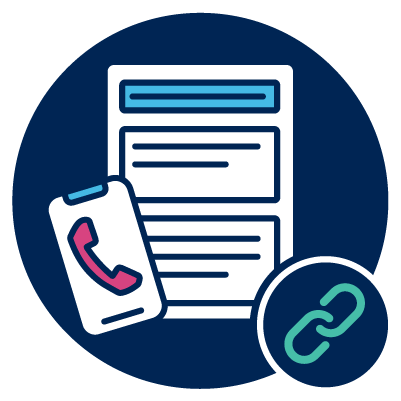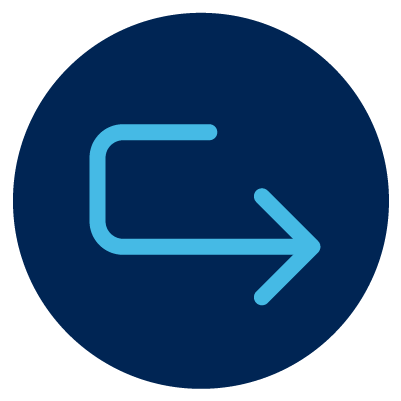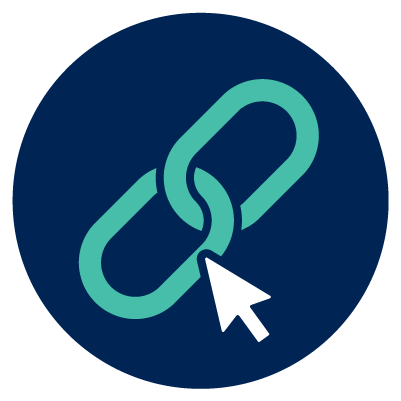What is Inclusive Employment Australia
Inclusive Employment Australia can help you prepare for, find and maintain work and grow your career if you live with disability, injury or health condition.
If you are looking for work, you can choose an Inclusive Employment Australia provider to help you.
You can also get help if you already have a job but need help to retain it because of your disability, injury or health condition.
You can also choose to participate in Inclusive Employment Australia even if your work capacity is between 0 – 7 hours per week.
Your provider will meet with you to discuss services tailored to your specific needs.
Services for job seekers
Getting ready for a job
An Inclusive Employment Australia provider can help you:
- get ready for work
- train in specific job skills
- write your resume
- train in interview skills
- look for a job that suits you.
If you need additional support to work, the provider may refer you to other available services such as health services. For example, psychological or pain management counselling or physiotherapy.
Inclusive Employment Australia providers can also help you access financial and other help. For example:
- funding through the Employment Assistance Fund to help pay for workplace changes, such as new equipment or assistive technology
- wage subsidies
- help to relocate interstate for a job
If you do not yet have capacity to fully engage as you are still building your capacity through Vocational or Non-Vocational activities or are impacted by personal and/or family circumstances, you can opt in for a flexible service.
Settling into work
After you get a job, your provider will help you and your employer for at least your first year in the job.
Your provider will stay in contact with you to make sure you get the help you need as you settle into your job.
With your permission, your provider can also talk to your employer about:
- modifying your workplace to support you
- help with job design
- on-the-job training, such as training to use equipment
- workplace awareness training
- Auslan at work
- ongoing help in your job.
Ongoing help at work
Your Inclusive Employment Australia provider can continue to provide ongoing support for as long as you need it.
You can continue to receive ongoing support while you are working as long as needed. You will need an assessment every 1, 2 or 5 years to check that you still need help.
Help if you already have a job
If you are already working and an injury, disability or health condition is making it hard for you to keep your job, you may be able to get help through Ongoing Support (Work Assist). Employees and employers can apply for Ongoing Support (Work Assist) through your Inclusive Employment Australia provider.
Help for employers
Inclusive Employment Australia providers are experts at connecting people with disability to employers. Inclusive Employment Australia providers can help employers with:
- finding eligible people for jobs
- advice on promoting job vacancies
- advice on choosing and interviewing people with disability.
Inclusive Employment Australia providers can give information about:
- disability awareness in the workplace
- financial help, such as funding workplace changes
- wage subsidies for employees with disability
- flexible working arrangements
- laws about disability.
Finding an Inclusive Employment Australia provider
Inclusive Employment Australia providers have specialised servicing and include dedicated providers with expertise in supporting key cohorts.
This means a mix of specialist providers to support various participant cohorts such as Deafness and Hard of Hearing, Intellectual Disability or Mental Health.
There are also First Nations providers, alongside Refugee and Culturally and Linguistically Diverse specific providers.
Search for an Inclusive Employment Australia provider near you or contact us for more information.
Useful Links
Inclusive Employment Australia Guidelines on the Department of Social Services website
Useful Downloads
Related pages
Last updated:
What is Inclusive Employment Australia
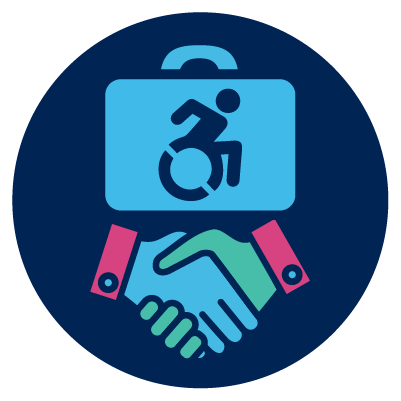
Inclusive Employment Australia can help you find and keep a job if you live with:
- disability
- injury
- health condition.
Inclusive Employment Australia programs
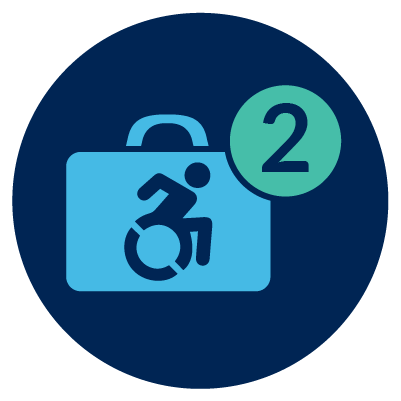
There are 2 programs that are part of Inclusive Employment Australia helps people with disability find and keep jobs. The Australian Government runs Inclusive Employment Australia.
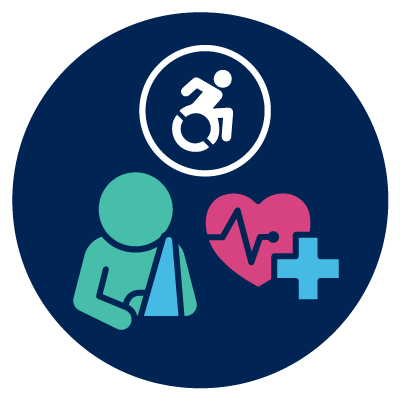
One of these programs is the Disability Management Service (DMS).
DMS can help you find and keep a job if you have:
- disability
- an injury
- a health condition.
It can sometimes provide support in your A workplace is any place you might work, such as an office, factory or shop. to help you keep your job.
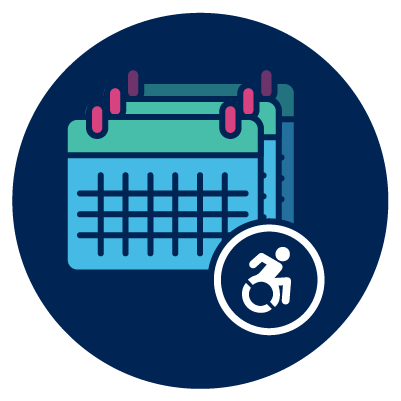
The other program that is part of Inclusive Employment Australia is the Employment Support Service (ESS).
ESS can help you find a job if you have disability that is lasting.
It can also help you in the workplace:
- often
- over a long time.
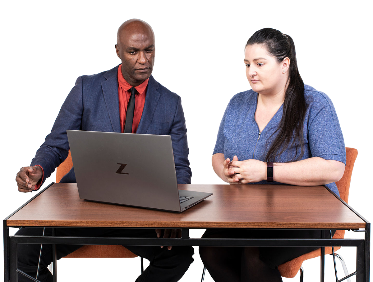
If you’re looking for work, you can choose a Inclusive Employment Australia providers help people with disability find and keep a job. to help you.
They’ll meet with you to plan support services that suits you.
Support to find a job
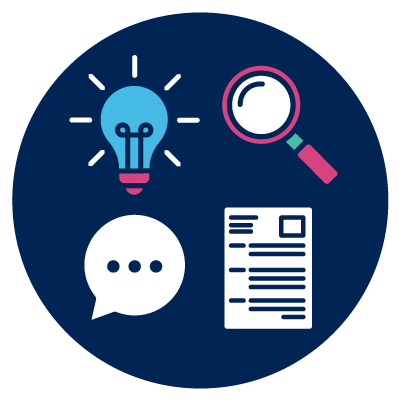
An Inclusive Employment Australia provider can help you get ready for work.
They can help you:
- build and learn skills
- look for a job that suits you
- get ready for an interview
- write a A resume is a document that lists your work experience, education and skills. People sometimes call this a CV.
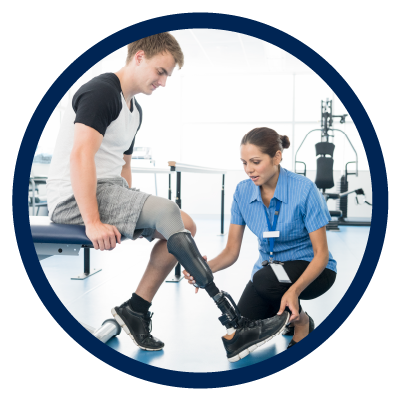
If you need help to work, your Inclusive Employment Australia provider might connect you to a health service.
For example, a service to help:
- you move your body
- your mental health.
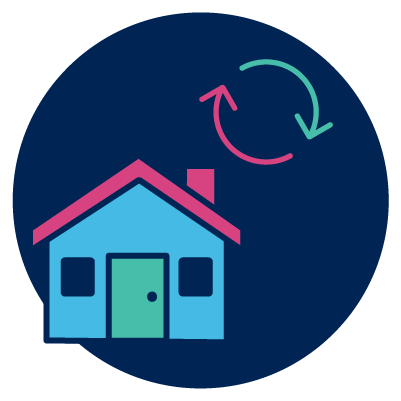
Inclusive Employment Australia providers can help you to change where you live for a job.
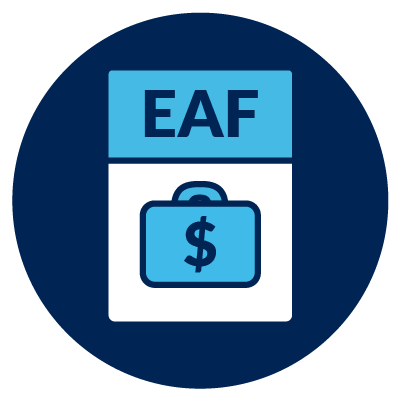
Inclusive Employment Australia providers can also help you get important items though the Employment Assistance Fund.
For example:
- support payments for businesses to help them pay you
- applying to the The EAF can cover the cost of supports and services so people with disability can do their job and get help with finding a job.
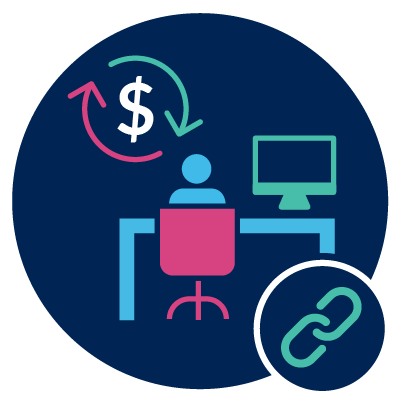
You can find out more on our page about funding for changes in the workplace.
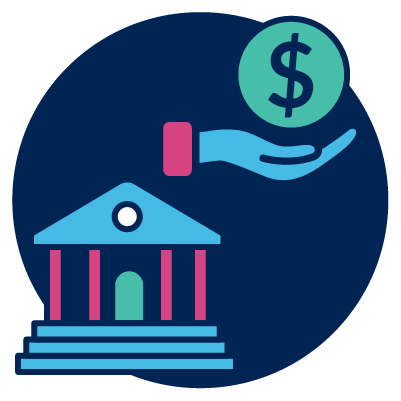
An employer hires people to work for them. might be able to get help from the government to help them pay to employ people with disability.
We call this type of help a 'wage subsidy'.
You can find out more on our page about subsidised wages for people with disability.
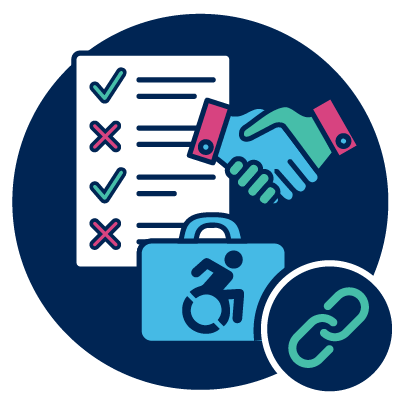
You can visit the page about the Inclusive Employment Australia Guidelines on the Department of Social Services website.
Support while you’re working
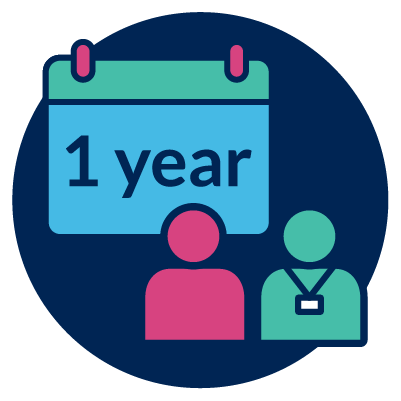
Your Inclusive Employment Australia provider will help you for at least one year when you start a new job.
This is to make sure you get the help you need.

Your Inclusive Employment Australia provider can also help your An employer hires people to work for them. if you say it’s okay.
They can help your employer to:
- change the workplace to help you
- make sure your job suits you
- train people at your work
- help you to do your job, including Auslan.
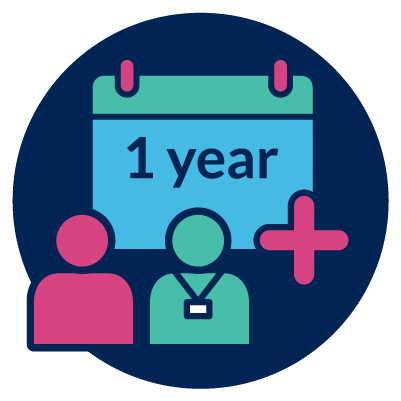
You can also get help after the first year, this is called 'Ongoing Support'.
If you’re part of the DMS program, you can keep getting help for a short time if you need it.
If you’re part of the ESS program, you can get help more often.
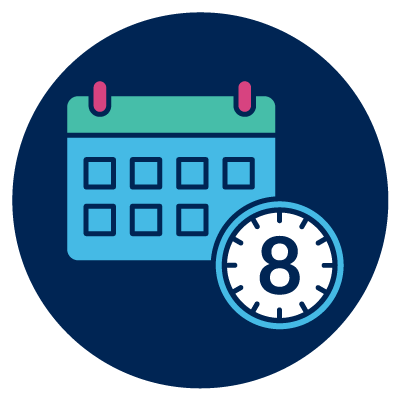
You can keep getting ongoing help in your job if you work at least 8 hours a week on average.
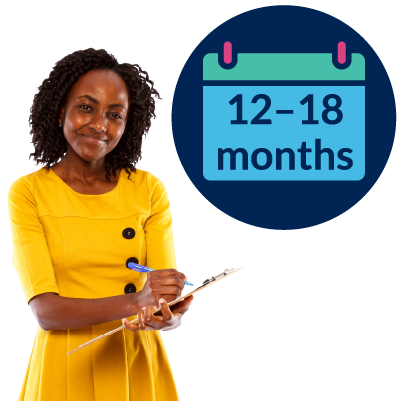
We’ll check you still need help every 12 to 18 months.
Support if you already have a job
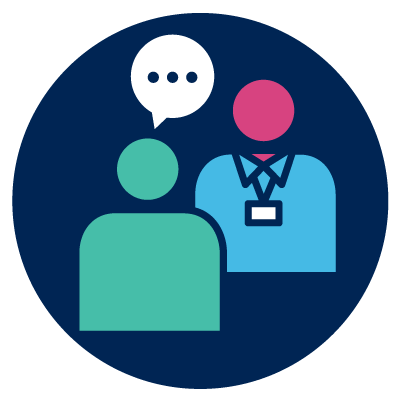
If you already have a job you might be able to get help through Work Assist.
You can apply for Work Assist by asking your Inclusive Employment Australia provider.
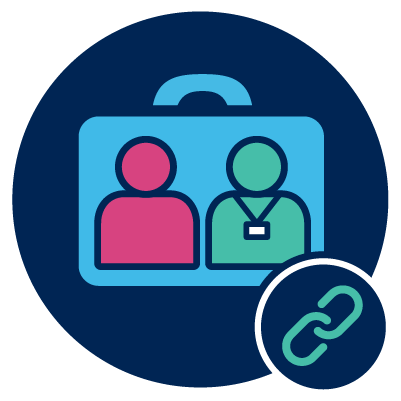
You can find out more on our page about how Work Assist can help.
Support for employers

Inclusive Employment Australia providers are good at helping people with disability connect with employers.
They can help employers to find new people for jobs.
They can also give advice about:
- how to tell people about a new job opening up
- choosing the right person for a job
- having interviews with people with disability.
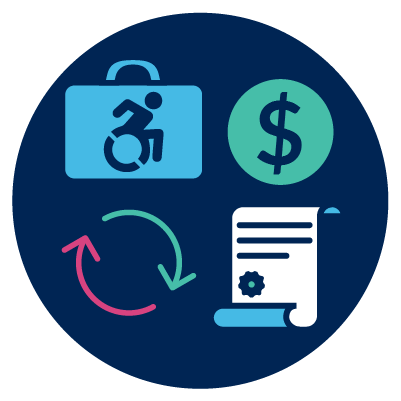
Inclusive Employment Australia providers can also share information about:
- disability in the workplace
- financial support, like the EAF
- changing tasks workers do and what hours they work
- laws about disability.
Finding an Inclusive Employment Australia provider
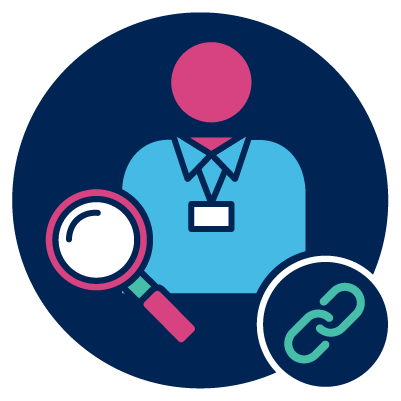
There are large, medium and small providers that deliver Inclusive Employment Australia in Australia.
You can find out more on our page about searching for an Inclusive Employment Australia provider.
